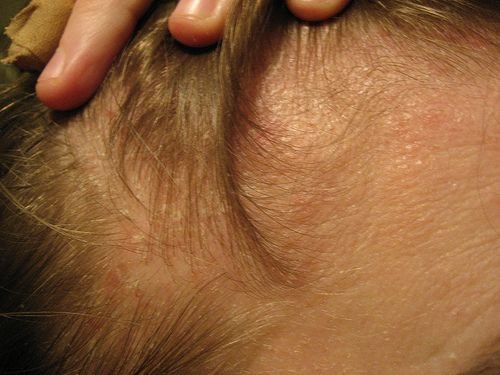
Introduction
Hair thinning, also known as hair loss or alopecia, can be a distressing condition that affects both men and women. While it’s natural to shed some hair daily, excessive hair thinning can lead to a loss of confidence and self-esteem. In this comprehensive guide, we’ll explore effective strategies to prevent and reverse hair thinning, helping you regain thicker, healthier hair.
Understanding Hair Thinning
Before delving into prevention methods, it’s crucial to understand the underlying causes of hair thinning. Hair thinning can result from various factors, including genetics, hormonal imbalances, nutritional deficiencies, stress, and certain medical conditions. Additionally, environmental factors such as exposure to pollutants and harsh chemicals can contribute to weakened hair follicles, leading to thinning hair.
Nutritional Support for Healthy Hair
A balanced diet rich in essential nutrients is essential for promoting hair health and preventing thinning. Incorporating foods high in protein, vitamins, and minerals can nourish your hair follicles and support optimal growth. Some nutrient-rich foods to include in your diet are:
- Lean proteins such as chicken, fish, and beans.
- Omega-3 fatty acids found in fatty fish, flaxseeds, and walnuts.
- Vitamin E-rich foods like almonds, spinach, and avocados.
- Iron-rich foods such as leafy greens, lentils, and fortified cereals.
- Vitamin C sources like citrus fruits, strawberries, and bell peppers.
Scalp Care and Hygiene
Maintaining a clean and healthy scalp environment is vital for preventing hair thinning and promoting hair growth. Regular shampooing and conditioning can help remove excess oil, dirt, and product buildup, preventing clogged hair follicles that may impede hair growth. Additionally, gentle scalp massages can stimulate blood circulation and promote nutrient delivery to the hair follicles, encouraging thicker, stronger hair growth.
Hair Care Practices to Avoid
Certain hair care practices can contribute to hair thinning and damage. Avoiding these habits can help preserve the health and integrity of your hair:
- Over-styling: Excessive heat styling, chemical treatments, and tight hairstyles can damage the hair shaft and lead to breakage and thinning.
- Frequent washing: Washing your hair too often can strip away natural oils, leading to dryness and breakage. Aim to wash your hair no more than 2-3 times per week.
- Harsh products: Using harsh shampoos and styling products containing sulfates and parabens can strip the hair of its natural oils and cause damage over time. Opt for gentle, sulfate-free and paraben-free formulas instead.
Lifestyle Modifications for Healthy Hair
Making certain lifestyle modifications can also play a significant role in preventing hair thinning and promoting hair growth. Here are some tips to incorporate into your daily routine:
- Manage stress: Chronic stress can disrupt hormone levels and contribute to hair loss. Practice stress-reducing activities such as meditation, yoga, or deep breathing exercises to promote relaxation and overall well-being.
- Get adequate sleep: Quality sleep is essential for cellular repair and regeneration, including hair follicle repair. Aim for 7-8 hours of uninterrupted sleep each night to support optimal hair health.
- Stay hydrated: Proper hydration is crucial for maintaining the health of your hair and scalp. Drink plenty of water throughout the day to keep your body and hair hydrated from the inside out.
Conclusion
Hair thinning can be a challenging condition to deal with, but with the right strategies and lifestyle changes, it’s possible to prevent and even reverse the process. By prioritizing nutritious eating habits, scalp care, and healthy lifestyle choices, you can support the health and vitality of your hair, promoting thicker, fuller growth.
Faq Question and Answers
- What are the common causes of hair thinning?
- Hair thinning can be caused by various factors, including genetics, hormonal imbalances, nutritional deficiencies, stress, and certain medical conditions. Additionally, environmental factors such as exposure to pollutants and harsh chemicals can contribute to weakened hair follicles, leading to thinning hair.
- How can I prevent hair thinning?
- Preventing hair thinning involves adopting a holistic approach to hair care and overall health. This includes maintaining a balanced diet rich in essential nutrients, practicing good scalp hygiene, avoiding damaging hair care practices, managing stress levels, getting adequate sleep, and staying hydrated.
- Are there any effective treatments for hair thinning?
- There are several treatments available for hair thinning, ranging from over-the-counter solutions to medical interventions. Some common treatments include topical minoxidil (Rogaine), oral medications like finasteride (Propecia), platelet-rich plasma (PRP) therapy, low-level laser therapy (LLLT), and hair transplant surgery. It’s essential to consult with a healthcare professional to determine the most suitable treatment option based on individual needs.
- Can dietary supplements help prevent hair thinning?
- Certain dietary supplements may help support hair health and prevent thinning, particularly those containing vitamins, minerals, and essential fatty acids. Supplements like biotin, zinc, vitamin D, and omega-3 fatty acids have been shown to promote hair growth and reduce shedding when taken as part of a balanced diet. However, it’s essential to consult with a healthcare provider before starting any new supplement regimen.
- Is hair thinning reversible?
- In many cases, hair thinning is reversible with the right treatment and lifestyle changes. By addressing underlying causes such as nutrient deficiencies, hormonal imbalances, and scalp conditions, it’s possible to stimulate hair regrowth and restore thickness to the hair shaft. However, the effectiveness of treatment varies depending on individual factors such as genetics, overall health, and the severity of hair thinning. Early intervention and consistent adherence to a hair care regimen are key to achieving optimal results.Read More